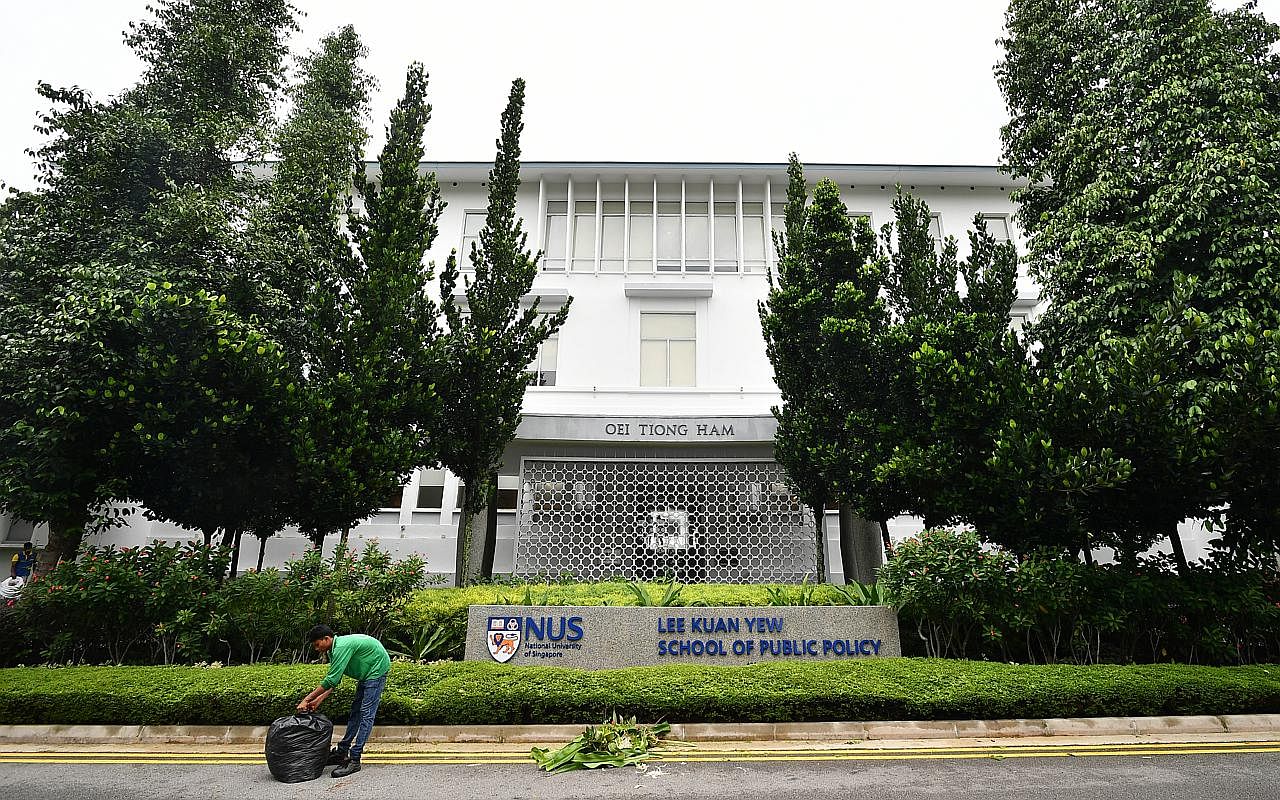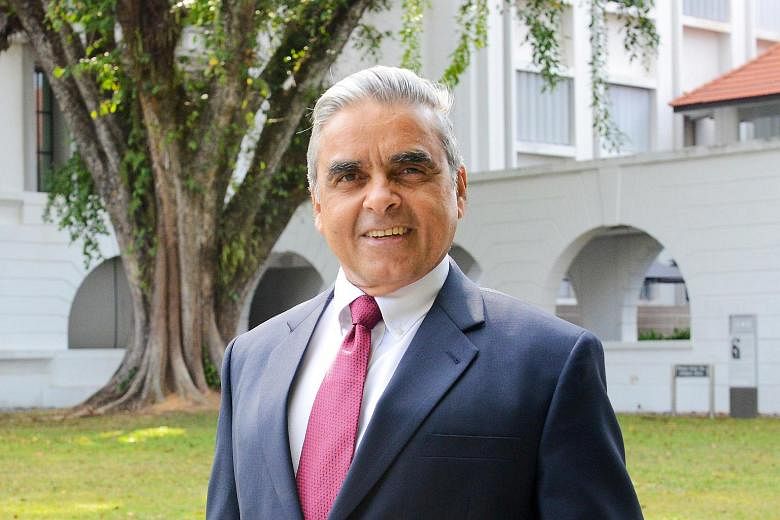SINGAPORE - Former senior diplomat Kishore Mahbubani, who has led the Lee Kuan Yew School of Public Policy since it was founded in 2004, will be stepping down as its dean on Dec 31.
His departure comes after 13 years at the helm, when the school - set up to serve as a training ground for Asia's future policymakers, among other goals - cemented its reputation as a pre-eminent public policy school globally, said fellow public intellectuals.
However, his term was also marked by some recent controversies, most notably when one of the school's senior academics, Dr Huang Jing, was identified as "an agent of influence of a foreign country" by the Government and expelled.
Professor Mahbubani, 69, will take a nine-month sabbatical next year. He will remain a faculty member of the National University of Singapore (NUS) before he retires fully in 2019. His retirement was announced by NUS yesterday.
A search process will be initiated for the next dean. Meanwhile, an acting dean will be appointed.
In a statement to the school's governing board, Prof Mahbubani said "the time had come for me to take a fresh look at what I should achieve over the next decade as I enter my 70s".
Calling it a new direction in his life, he wrote that he wanted to "focus on a new career that involves more time spent on reading, reflection and writing" after 46 years in administrative positions. He previously served 33 years in the Singapore foreign service. He was also the permanent secretary at the Ministry of Foreign Affairs from 1993 to 1998.
"I need to rebuild my store of intellectual capital, if I am to carry my writing up to a higher level," said the NUS alumnus, who underwent a double heart bypass surgery last year.
He added: "It has been an incredible privilege to be the dean of the NUS Lee Kuan Yew School of Public Policy (LKYSPP). After 13 years, it is timely for a new leadership to take the school to greater heights."
He declined requests for further comment.
The university said that during Prof Mahbubani's tenure, the school developed a strong international reputation as Asia's leading public policy school and as a thought leader in key areas of public policy research.
The school now has over 2,350 graduate alumni in 80 countries.

Calling Prof Mahbubani one of Singapore's "star diplomats", Ambassador-at-Large Tommy Koh told The Straits Times that he leaves two major legacies, both as a diplomat and as the public policy school dean.
"He has, in a very short time, put the LKYSPP on the world map of the leading public policy schools of the world. He has also raised a very considerable amount of money as endowment and the school, I think, is financially secure for the future. He has also recruited some world-class scholars. So, in all three respects, we are greatly indebted to him," said Professor Koh.
As a writer, Prof Mahbubani - whose first book, in 1998, was titled Can Asians Think? - has never shied away from provocative topics.
In a piece he wrote in The Straits Times in July - "Qatar: Big lessons from a small country" - he said pointedly that an eternal rule of geopolitics is that "small states must behave like small states".
It drew sharp criticism from senior diplomats Bilahari Kausikan and Ong Keng Yong, as well as Law and Home Affairs Minister K. Shanmugam, who said Prof Mahbubani's assertion ran contrary to some of founding prime minister Lee Kuan Yew's basic principles that made Singapore successful.
"Mr Lee never advocated cravenness or thinking small. Did we get to where we are now by thinking 'small'? No," Mr Shanmugam wrote.
Mr Ong told The Straits Times: "Kishore Mahbubani is an exceptional mind and he will articulate his view in whichever he deems right. His intellectual position will not easily change even though the others around him try to persuade him otherwise. Therefore, both sides just have to move on."
On whether the recent events could have been a factor for Prof Mahbubani's departure, he added: "I must stress that this may not relate to why he decided to go on sabbatical. It is best not to connect so directly what happened recently to his decision to leave the dean's post in LKYSPP."
Mr Bilahari declined comment.
Emeritus Senior Minister Goh Chok Tong, who chairs the LKYSPP governing board, said of Prof Mahbubani: "He has firmly established the school as an internationally renowned institution for public policy education and research in Asia."


